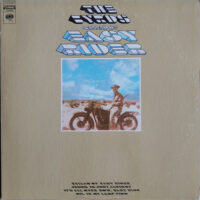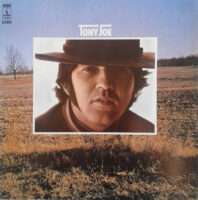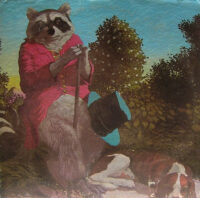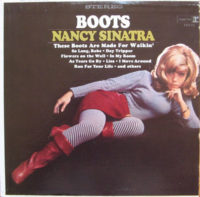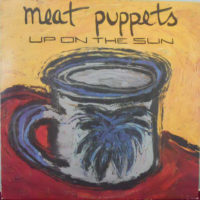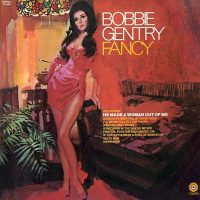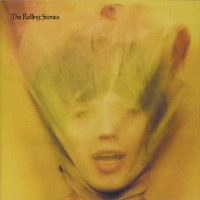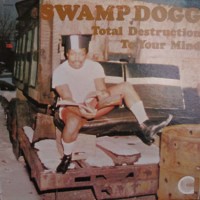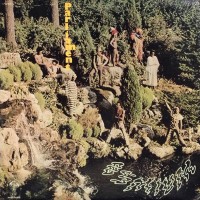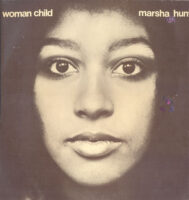
Born in Philadelphia in 1946, Marsha Hunt attained cultural cachet and musical brilliance in the UK during the hothouse milieu of late ’60s and ’70s London. She is something of a Renaissance woman, earning notoriety as an actor, model, singer, and novelist. On a more salacious note, Hunt also had more than artistic relationships with some of England’s rock royalty, including Marc Bolan, Mick Jagger (with whom she had a child), John Mayall, and Soft Machine’s Mike Ratledge, whom she married to help her resolve visa problems. In addition, Hunt sang alongside Bluesology keyboardist Reg Dwight (later Elton John), acted in the London staging of the zeitgeisty musical Hair, and reputedly was the inspiration for the Rolling Stones’ “Brown Sugar.” What a legend…
We here at Jive Time HQ are most interested in her musical exploits, though, which she flaunts with panache on her debut LP, Woman Child. Produced by three of the UK’s finest studio wizards—Gus Dudgeon, Tony Visconti, and Kit Lambert—the album goes heavy on covers… some expected, some surprising. With everyone from Humble Pie to Jonny Jenkins to Cher covering Dr. John’s “I Walk On Gilded Splinters,” it’s not shocking for a soulful diva such as Ms. Hunt to take a crack at it. And Marsha really digs into the haunted guts of this New Orleans voodoo-funk classic with apropos gravitas and intensity. It’s clear from the outset that Hunt’s acting chops came in handy when she got in front of a mic in the studio. Her expressiveness is elite.
Hunt also flexes her formidable range on “No Face, No Name, No Number,” an intimate, orchestral interpretation of the 1968 Traffic ballad. The vibe resembles some of the gentler pieces on Love’s Forever Changes. Hunt gives one of the Supremes’ most heart-rending hits, “My World Is Empty Without You,” a nuanced reading, reflecting the lyrics’ profound hurt amid a shivering, orchestral backing and subtle conga patter. Listen closely for her beau, Bolan, on backing vox. On “Keep The Customer Satisfied,” Hunt blows out Simon & Garfunkel’s twee folk song into a gospel/hippie-rock revival, with crazy, wailing sax. And her seductive take on Dylan’s celebratory country-rock nugget “You Ain’t Goin Nowhere” probably made Bobby all hot and bothered.
The first of three Bolan compositions reworked here is “Hot Rod Papa,” in which Hunt switches the gender of Marc’s spare blues-rocker “Hot Rod Mama.” She and her musicians improve the original into sleazy, fried R&B that’s not too far from what Rotary Connection were doing a couple of years earlier. A mellifluous, folk-proggy Bolan number from Tyrannosaurus Rex’s Prophets, Seers & Sages The Angels Of The Ages, “Stacey Grove” doesn’t really play to Hunt’s strengths, but it’s interesting nonetheless. And for all the John’s Children fans, there’s a remarkably sexxxy soul cover of the freakbeat classic “Desdemona,” written before Bolan formed Tyrannosaurus Rex. Here’s where Hunt reveals her swag in excelsior. The way she sings “lift up your skirt and flyyy-iiieee” is a serious climactic moment on Woman Child.
On “Wild Thing,” Hunt once again super-charges a white-boy track (this time by the Troggs) with show-stopping eroticism. She brings the full force of her towering thespianic powers to this groovy ode to raunchiness. Rumor has it that Faces members Ron Wood, Ian McLagan, and Kenny Jones play on this. I believe it.
It should be noted that Hunt’s greatest song, “(Oh No! Not!) The Beast Day,” only appears on a 45 released by the vaunted Vertigo label in 1973. I paid a pretty hefty price for it, but the ROI has been great, as I play it in 90% of my DJ gigs to overwhelming approval. Both that single and this album deserve reissues. It may be quixotic to think that this review will initiate the process, but it can’t hurt to put the idea out into the universe. -Buckley Mayfield
Located in Seattle’s Fremont neighborhood, Jive Time is always looking to buy your unwanted records (provided they are in good condition) or offer credit for trade. We also buy record collections.


